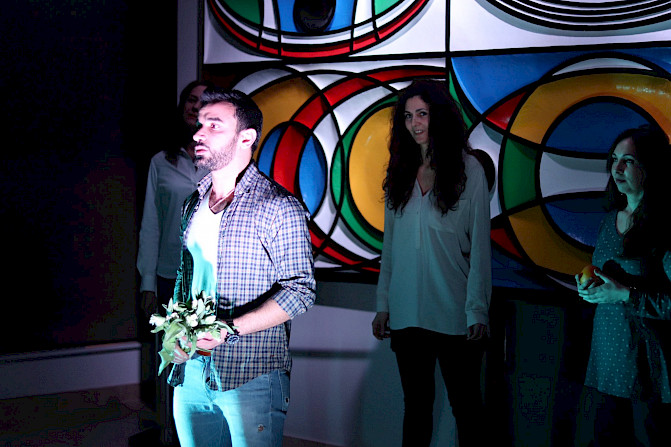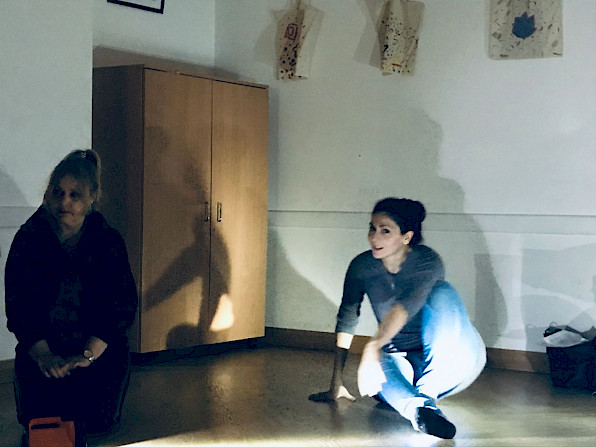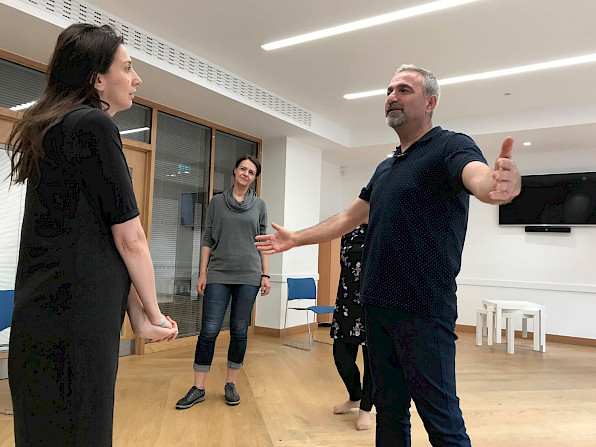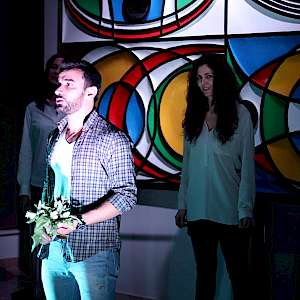In this blogpost, Lara Parmiani, the founder and artistic director of LegalAliens Theatre, explains the organisation's origin and ethos:
My name is Lara, I was born in Italy and have been living in London for 20 years. I'm a migrant. Perhaps not who people think of when they hear the word, but a migrant nonetheless. The migrant experience isn't a monolith. It's nuanced, and although at its core it has a shared sense of displacement, its variations are infinite. Same for refugees. Their experience isn't homogenous. It's made up of multiple individual stories, all unique.
I'm a theatre maker. Theatre in the UK is often seen as an elitist pastime, not really representative of Britain's great diversity. Yet at the core of theatre is a community getting together. To share experiences, make sense of life’s events and overcome them together. To rejoice, to cry and to laugh.

I founded LegalAliens Theatre as I longed to bring real diversity to theatre. We started ten years ago, slowly developing our theatrical language, methodology and objectives. In 2019, as part of our project "Migrations: Harbour Europe", we began to run weekly workshops for migrants and refugees in Tottenham, North London. They are free, and although many participants are regulars, people can join at any time. We are there, whether it's for two people or twenty.

Language barriers are a great cause of social isolation. The fear of making mistakes, being misunderstood, coming across as stupid can be paralysing. Having a space to meet people who share the same experience, free to speak English with no judgement, is liberating. If a person doesn't understand, somebody will translate, often through interesting language chains (English to Syrian to Turkish. Russian to Latvian to English). A lot of miming is also involved - a great source of physical comedy. But it's not just about language. Theatre is an empowering tool, allowing you to "take space". Reclaim your voice. Be seen. Techniques such as learning how to control your breathing or project aren’t just useful to actors. They make you confident. Calm and strong.

Many initiatives promoting arts for refugees and migrants are predicated on "Tell us your story!" Yet sharing personal experiences - whether traumatic or not - is often the last thing most people wish to do in front of strangers. So, although we have used texts about migration as provocations (like the play Genesis by Chiara Boscaro), we treat them as acting pieces, allowing the participants to address the theme while keeping a distance. Of course, at times personal stories do resurface. We had a Syrian refugee in the group, who had never talked about his past until one evening, out of the blue, he shared it with us. It was harrowing, dramatic and we cried. Then we moved on to an impro exercise and he used it to perform a sort of physical comedy about his travels from Syria that had everyone rolling with laughter. I wish I had filmed it. He had turned his experience into a slapstick sketch about the absurdity of war and the bureaucracy of it all. From tragedy to farce. This is the magic of theatre. I felt humbled to have witnessed such an explosion of creativity, frustration, sadness and pure joy of life.
